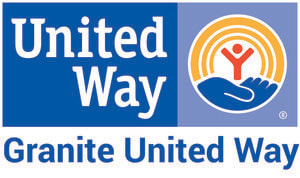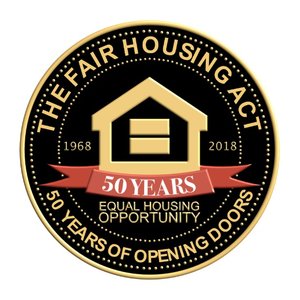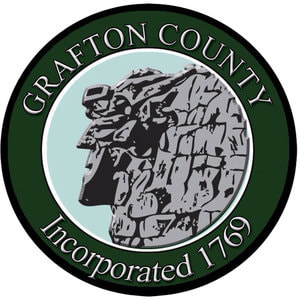New Hampshire Supportive Housing Toolkit.
|
Introduction Overview of Permanent Supportive Housing for Persons with Developmental Disabilities Exploration Development Housing Operations Supportive Services Other Living Expenses of Individuals Putting It All Together: Budgeting For The Individual Developing and Maintaining Your Nonprofit Tax-Exempt Entity Additional Resources Glossary |
A) Individual1) Alternatives to Pursuing Housing Development Activities: Current Housing Models for Adults with I/DDIn 1991, New Hampshire became the first state to close all of its state-operated I/DD institutions. To compare measures of how New Hampshire has served its developmentally disabled over time and as compared to other states, see the data published by The Case for Inclusion, available at http://caseforinclusion.org/index.php/data. The following are the residential models presently available in New Hampshire for persons with I/DD. As a general rule, they are funded through the Medicaid DD Waiver.[1]
[1] See description and discussion of the DD Waiver, below. a) Day ServicesDay services[1] can be a component of different residential models. Day services aim to provide assistance and training to individuals to help them maintain and improve their skills in personal care, vocational activities and community integration to enhance their social and personal development. In regions of the State where choice is available, an individual or their guardian will seek to best match the program with the individual and her interests. A person who receives day services typically is transported to and from the site where the day services are delivered, and spends six hours per weekday at the site.
[1] RSA 171-A:3; 171-A:18, IV; 137-K:3, IV. He-M 507. b) Living IndependentlyAn individual who is capable of sufficient independence can choose to live in an unsupported apartment, their rent paid by SSI and earned or other income, in the best case supplemented with a Section 8 rental subsidy.[1] He or she might be eligible for services through the DD Waiver or Community Support Services.[2] A direct care provider might typically come to assist for fifteen to twenty hours per week, for example to assist with food shopping and preparation and travel to and from appointments. The pros of such an arrangement can include maximization of independence. Cons can include social isolation and lack of vocational opportunity and support. Typically there is no support available for evenings or weekends.
[1] See description and discussion of Section 8 subsidies below. [2] Community Support Services are intended for individuals who have developed or are trying to develop skills to live independently within the community. Services consist of assistance and training provided to maintain and improve skills in daily living and community integration and to enhance social and personal development. c) Living With a Member of One’s FamilyTypically for an individual with I/DD, the individual’s family is responsible for recruiting, retaining and managing any staff through § 525[1] or § 521[2] funding.
[1] Participant-directed services, typically referred to by reference to its enabling state legislation, New Hampshire statute He-M §525, discussed below. [2] Similar to Enhanced Family Care, but under this version a family member may serve as the Residential Home Provider. Typically referred to by reference to its enabling state legislation, New Hampshire statute He-M §521, discussed below. d) Enhanced Family CareThe primary housing model in contemporary New Hampshire for persons with intellectual or developmental disabilities is Enhanced Family Care (“EFC”), often referred to as adult foster care. EFC is provided by a private individual (a “Residential Home Provider”) who takes a disabled or elderly person into their home and provides personal care, companionship, transportation and other services, 24 hours a day. These settings have been funded under both § 525 or § 1001.[1]
A Residential Home Provider is hired as an independent contractor by an area agency or provider.[2] In addition to providing room and board, the provider cooks for the client, bathes them if they can't do so themselves, monitors their medications, arranges and provides transportation to appointments and ensures other basic daily needs are met. Depending on the needs of the person being served, staffing may be provided in the EFC setting in addition to the Residential Home Provider. The resident will often attend a day program, funded under He-M § 507, although sometimes the provider is expected to provide the equivalent of day services in the home and § 507 funds are contributed to the EFC budget. Potential pros of adult foster care include a home-like setting, family atmosphere, one-on-one relationships, and, in some cases, community integration. Potential cons include the risk of ending up with an unsatisfactory provider, isolation, lack of oversight, lack of tenancy rights, and inadequate respite for the provider.[3] The total budget for an EFC placement of typically around $60,000 may reach $100,000 for high-needs individuals.[4] The client typically contributes almost all of their SSI to that budget, retaining perhaps $40 per month, leaving guardians or case managers to scramble to fund incidentals like eyeglasses and dentures. [1] “1001” refers to New Hampshire statute He-M §1001, which sets forth the Certification Standards For Community Residences in which HCBS services may be delivered. This type of funding is discussed below.
[2] Residential Home Providers receive fees but do not receive benefits. Provider compensation is typically $45,000 to $50,000 and may be higher where a specialized provider, such as one fluent in a particular foreign language, is required. As foster care providers, their compensation may qualify for federal income tax exemption. [3] The more respite that is built into an EFC budget, the less compensation the home provider receives, so there can be incentive on the provider side to exclude or minimize respite. Anticipating this, some guardians demand during the budgeting process inclusion of sufficient provider respite. [4] EFC placements are not tenancies and are not eligible to receive Section 8 subsidies. e) Staffed HomesSimilar to enhanced family care except staffed by employees of an area agency.
f) Provider PlacementsStaffed living situations offered by providers, including community residences (i.e. group homes), funded under § 1001.
There are a variety of concerns with group homes. At one time group homes represented estimable progress over large institutions. In the present environment (in which New Hampshire, for example, has eliminated large institutions), group homes have come to represent the most inherently institutional of the various available models. Best intentions notwithstanding, placement in a group home is most typically driven by availability of a bed, rather than driven by a desire amongst the home’s residents to live with one another. Thus group homes function as forced roommate living. g) Additional Settings for Certain High Needs CohortsNorth Country Independent Living (in Conway and Barrington) offers residential settings for individuals with severe behavioral issues. Easter Seals operates a number of group homes and homes for persons with I/DD who have high cost medical needs. Crotched Mountain houses some adults with I/DD on its property and in area residences. Community Bridges operates the START Center, which provides up to thirty days of emergency respite, space permitting.
For an individual who exhibits severe behavioral issues, or where there are community safety concerns, specialized residential housing options designed to provide behavioral modification or educational services are available. Sometimes these placements are outside New Hampshire, most often in Florida. New Hampshire operates one locked facility, in Laconia, housing persons with I/DD who have a history of criminal sexual offending. h) Supportive Housing Settings Created by FamiliesSupportive housing settings are not entirely uncontroversial. Advocates for these settings view them as tending to reduce isolation, offering opportunities for experiences like community meals and socializing, which can be more difficult to find where persons with I/DD do not live with persons with similar issues. With multiple layers of staff, some view the settings as safer than others with respect to the risks of sexual, financial, emotional, and physical abuse.
Critics view supportive housing as similar to group homes, presenting the risks inherent in congregate settings and, over time, inevitably tending to take on undesirable institutional qualities. i) Visions in EnfieldThe Visions Experience:
|
Visions For Creative Housing Solutions
THANK YOU SO MUCH TO THE ORGANIZATIONS WHO HAVE HELPED SUPPORT OUR EFFORTS!


